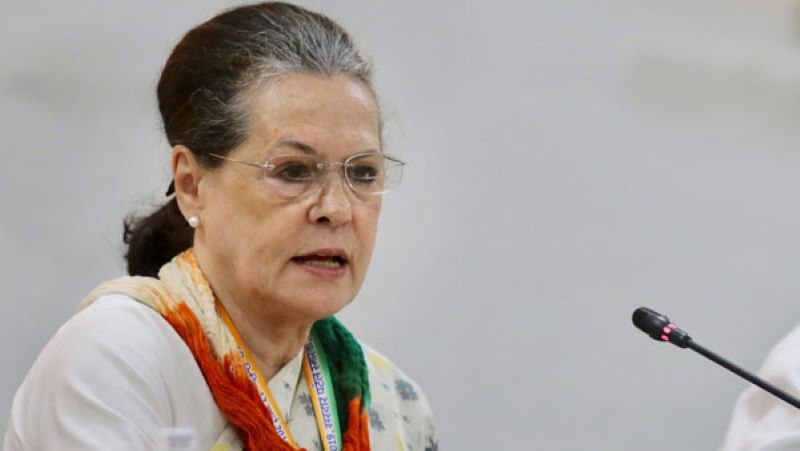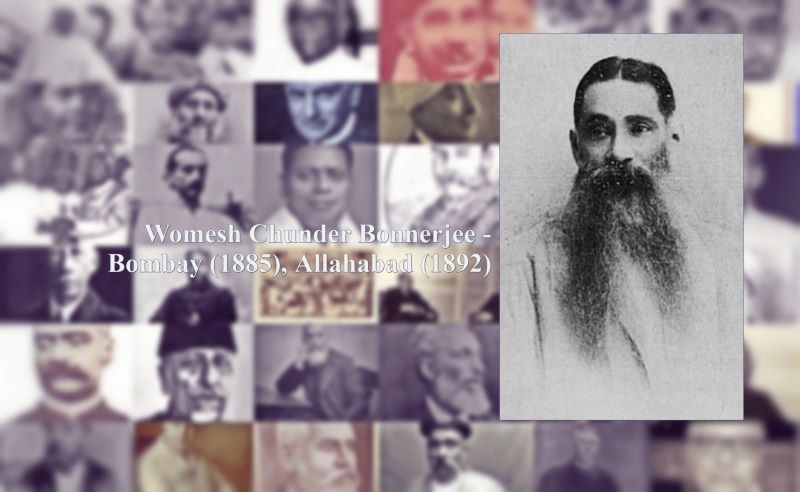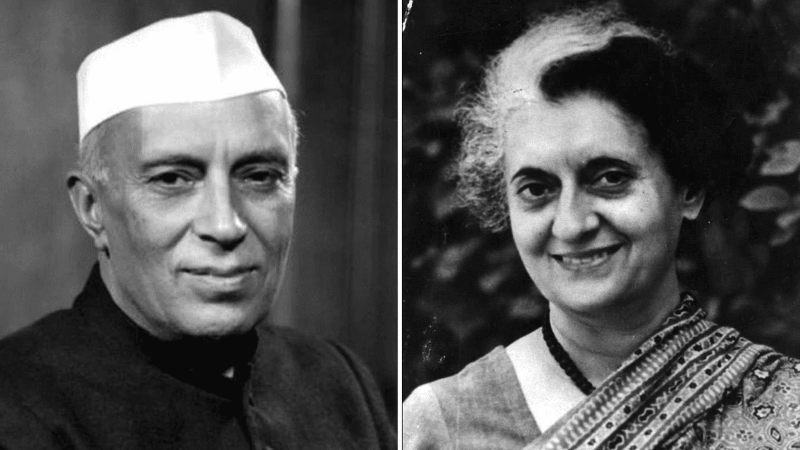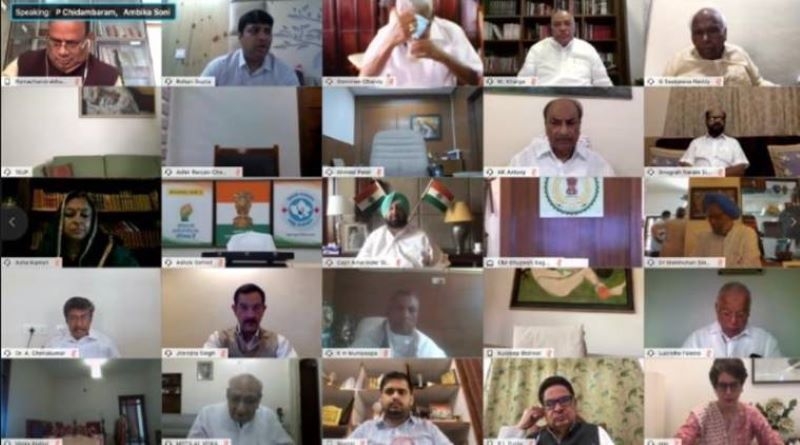A languishing Congress party needs shedding a slough

Furor turned drama seems to be over. Those who roared and emitted a strong signal of an imperative ‘historical divide’, tamely backtracked with an apologetic gesture to the family head without an unheard murmur.
A prestigious English daily its edition dated 23rd August 2020 is on record to have narrated the pitiable situation of the Party as following in the words of Sandeep Phukan:
“The meeting comes amid a churn over the leadership question but the party didn't announce the formal agenda of the meeting.
“The Congress Working Committee (CWC), the highest-decision making body of the party, will meet on August 24, party general secretary K. C. Venugopal said on August 22.
“The meeting comes amid a churn over the leadership question but the party didn't announce the formal agenda of the meeting.
"A meeting of the Congress Working Committee will be held on Monday, the 24th August 2020 at 11.00 AM via video conferencing," Mr. Venugopal tweeted.
“In the backdrop of a renewed debate over the issue of leadership and a full-time president, the meeting assumes great significance in terms of direction and the future of the party.
“Despite the official denial, The Hindu has learned that a section of senior leaders has formally conveyed their concern about the party's functioning and the ‘sense of drift’, with the party.
“Privately, the same set of leaders have been arguing that former Congress chief Rahul Gandhi, despite his public stance of a non-Gandhi heading the Congress, "has neither completely given up control nor is prepared to take back the reins of the party formally".
“Given the divisions over the leadership question, the party may explore different options: First, urge Sonia Gandhi to continue until a proper Congress session elects a new full-time president post the coronavirus pandemic. However, there are concerns if the requirements of a full-time party president will impact her health.
“The second option, backed by a large number of younger leaders, is to ask Mr. Gandhi to take over but a close aide of him told this reporter that the former party chief is not yet ready to take back his old job.
“As a compromise between old guard and young leaders, a third option could be to choose leaders of the stature like Dr. Manmohan Singh or A. K. Antony if their health permits.
“A senior leader, however, told this reporter that more than the leadership, the party could focus on revamping the organization including appointing new general secretaries and relieving some of the existing ones.” (Source: The Hindu: 23rd August 2020)
Is it not a pity? A century-old, most time ruling national political party, which built a nation-wide opinion, infusing a strong sense of national pride, which ultimately caused and inflicted a humiliating defeat on the part of the British imperial might, presented a poor picture of its national existence on 24th August 2020.
Yes, it is the same Indian National Congress that the entire country and the people once upon a time admired and followed; India’s pride flag inspiring several countries and their respective peoples who were fighting against the imperial and colonial powers which had kept them under political and military captivities for long. Indian National Congress was an ideal inspirator to follow for those who waged a war of political liberation of India from the clutches of their respective captivators.
It is also interesting to note that despite Mahatma Gandhiji’s spiritual advice to then Congress leaders to dissolve the party as it had achieved its political objective, the people now needed a party that would pay its attention towards social agenda and economic development with fresh leadership. But the Mahatma found himself isolated. He became a junk.
Intellectuals in this country wonder to find the party fall to an unbelievable slide in such a short period of four decades after independence.
The initial spade-work…can’t ignore: It was Pt. Jawaharlal Nehru who steered the ‘newly born’ nation towards loose political stability. When the country was freed from the British clutches, the then Congress leadership realized that ‘a huge task’ lay before them was ‘Development’. It would be unfair to state that the colonial power did nothing to initiate development in the country, in fact, the colonial power took several steps to usher in various plans and programs leading to economic growth and social justice and peace. They envisaged strengthening of the communication systems such as railways, surface transport, power sector, irrigation schemes, schemes of financial assistance for the agro-industrial sector as well as in-house growth-oriented financial schemes. The silver line of the first marshy two-decade period especially, up to 1960 was the exceptional political national guide- forwarding the cache.


The list of presidents also indicates that some presidents were Britons, (who were senior civil servants in the British Indian Government in India). A few Muslims, a few Christians too (the Britons were of course Christians) had been elected as Presidents. Lawyers, medical practitioners, teachers, and social workers were at the forefront in political agitations.
Congress scanned: One interesting conclusion could be arrived at and could be seen that the party (i.e. the INC) was a loose confederation of different views and principles and people with different classes and occupations albeit a common objective/goal to achieve i.e. freedom from the British rule. The party history was summarized in the following manner.
“The Indian National Congress was a political party in India with widespread roots. Founded in 1885, it was the first modern nationalist movement to emerge in the British Empire in Asia and Africa. From the late 19th century, and especially after 1920, under the leadership of Mahatma Gandhi, Congress became the principal leader of the Indian independence movement. Congress-led India to independence from Great Britain and powerfully influenced other anti-colonial nationalist movements in the British Empire.
Congress is a secular party whose social-democratic platform is generally considered to be on the Centre-Left of Indian politics. [After the party's foundation in 1885, Wyomesh Chunder Bannerjee became its first president. A total of sixty-one people has served as the president of the Indian National Congress, Sonia Gandhi being the longest-serving president of the Congress party, having held the office for nineteen years from 1998 to 2017.
During 1885–1933, the presidency had a term of 1 year only. Traditionally, the post rotated between prominent members of the party, successive terms for the same person being frowned upon. During Jawaharlal Nehru's premiership, he rarely held the Presidency of INC, even though he was always head of the Legislative Party.
Indira Gandhi however, institutionalized the practice of having the same person as the Congress President and the Prime Minister of India after she formed Congress (I) in 1978. Her son Rajiv Gandhi continued that practice.
P. V. Narasimha Rao too held both the Congress (I) President and the Prime Minister's posts. Sitaram Kesri held the post after INC was voted out. But as the party never returned to power under his leadership, he didn't hold the two posts together during 2000–09, INC did not host a conference for the first time in history. In 2004, when the INC was voted back into power, Manmohan Singh became the first Prime Minister, not to be the president of the party since Indira Gandhi established the practice of the president holding both positions. Sonia Gandhi is the longest-serving president of the Congress party, having held the office for nineteen years from 1998 to 2017.
Her son Rahul Gandhi, the last Congress President, resigned from the post on 3 July 2019. On 10 August, the Congress Working Committee, elected Sonia Gandhi as the interim President. The decision led to critics saying that the Gandhi family is refusing to loosen its grip on the party’s internal power structures”. (Source: Wikipedia)
The gang of four: The internal power structure in the party is a tilt towards introvert authoritarianism. Inner-party democracy seems to have been thrown to the winds. There are no primaries, no regional democratic conferences, no national convention at the all India level. The attitude of the Congress leadership depicts a picture of “a gang of four” which takes all decisions moreover it expects complete loyalty to a particular family and a family-head.

Macaulayan lessons have served their speculative designs of demoralizing the society and the polity as well. The very heterogeneity of the composition of the Congress and other similar parties have destroyed the spiritual fabric of the Indian society.
It becomes very interesting to study the Congress party which is blessed with contradictory lessons-on the one hand the party has an inbuilt awareness and consequential outlook of the material development of the individual as well as the country, whereas at the same time it is aware of the spiritual past of the Indian society.
The intellectual status of the persons who adored the presidentship of the party in its initial period was unquestionable. These were nationalists, honest and their personal integrity was beyond doubt. These were the human beings who lived with and for certain high moral values.
It is a great tragedy and the loss of the country that the yesteryear-generations yielded their posts to those who had “personal agenda” as their supreme aim of life. Pt. Nehru, perhaps was the last icon in the yesteryear generation.
Soon, India saw the emergence of a new political group, rising on the horizon, with nationalist fervor and spiritually woven to the typical native ethos and genes. It was the BJP.
Four decades after independence, the Congress leadership did both-initial spadework of development programs in India as well as gradual squeeze of the economy and the polity like a leech. False internationalism and indecision have gripped the organization and leadership.
The present scenario: The present scenario of the Congress party is not very promising. It seems to have been reduced to a small coterie which in no way is representative in character. None of the office-bearer is duly elected at any level and is a representative of any electoral college. Moreover, people cannot forget or ignore the ‘emergency period’ during which thousands of these people were put behind the bar on account of their difference of opinion which these expressed. The aftermath period of the emergency of 1977, the General Elections for the Union legislature in India was a great turmoil and a hope too. That marked the beginning of the end period for the Congress which it never realized. It kept on taking the Indian electorate for granted. Even today it continues to do so.
What next?: India is a parliamentary democracy. Close to a two-party system. Several decades after Independence, the country has discovered a strong nationalist ruling party. The BJP is coming of age. It has spread its wings to the length and breadth of the country. It is a disciplined, cadre-based strong party. It is a party that is close to the ground reality. Its very foundation stems from the soil of this country. It has a clear vision of the road map to the development of the country and society.
Most of all, it has a strong support base of a social organization whose credentials have been beyond doubts, in fact, it would not be an exaggeration to submit that the former was an extension i.e. the common use of bathrooms, toilets, halls. etc. and it preached universalized mutual association. The largest socio-cultural NGO has presented the country with a party which was as if to say a citadel of nationalism, strong political will and a powerful organizational base. It’s the Rashtriya Swayamsevak Sangh (RSS).
A new task for the RSS?: In view of the earlier discussion in this article, I have a question, whether should it be a sacred duty of the same NGO to prepare itself to present the nation with a new opposition party strengthening the parliamentary democracy. India needs an alternative executive.
Will Congress oblige? Why not?: Congress in the present form seems to be on the death bed. The organizational structure of the party does not assure the Indian polity to stride ahead in good health. It has lost its entire cadre, vertically and horizontally.
A fact which has often been proved more than once, that without the word Gandhi, it can’t move ahead an inch. Such an attitude of a party will not sustain any longer and it would fail the nation. The ultimate sufferer would be the common man in the street, who even otherwise is left bereft.
The performance of the party leadership at all levels has of late become synonymous to corruption, vandalism, nepotism, and irrelevant. Policy-making could be a differing dimension of a new party, but personal integrity is quite a different requirement. Substitute the present languishing slough with a completely new ware.Bharati Web








